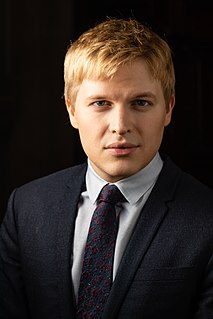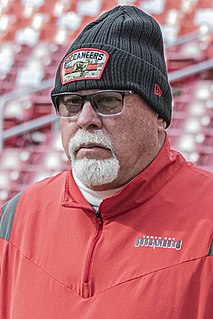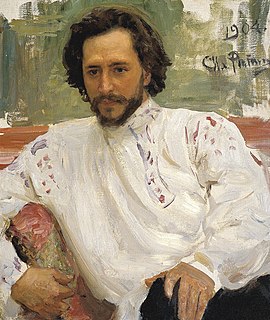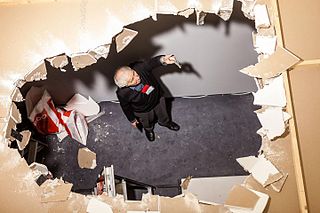A Quote by Lothar Matthaus
I always say that if you stay with a good coach, the relationship between him and his team becomes like a family: he becomes a father with his children.
Related Quotes
When we accept Christ we enter into three new relationships: (1) We enter into a new relationship with God. The judge becomes the father; the distant becomes the near; strangeness becomes intimacy and fear becomes love. (2) We enter into a new relationship with our fellow men. Hatred becomes love; selfishness becomes service; and bitterness becomes forgiveness. (3) We enter into a new relationship with ourselves. Weakness becomes strength; frustration becomes achievement; and tension becomes peace.
He's my father married to my sister. That makes me his son and his brother-in-law. That is such a moral transgression... I cannot see him. I cannot have a relationship with my father and be morally consistent. I lived with all these adopted children, so they are my family. To say Soon-Yi was not my sister is an insult to all adopted children.
The most important relationship a head coach has on his team isn't with the other coaches, the owner or the general manager. It's with the quarterback. He's the one who runs the show on the field; He's the ultimate extension of his coach. If there isn't a high level of mutual trust between them, both coach and quarterback will be doomed.
When the father dies, he writes, the son becomes his own father and his own son. He looks at is son and sees himself in the face of the boy. He imagines what the boy sees when he looks at him and finds himself becoming his own father. Inexplicably, he is moved by this. It is not just the sight of the boy that moves him, not even the thought of standing inside his father, but what he sees in the boy of his own vanished past. It is a nostalgia for his own life that he feels, perhaps, a memory of his own boyhood as a son to his father.
The nephew revenges himself for this, by holding his breath and terrifying his kinswoman with the dread belief that he has made up his mind to burst. Regardless of whispers and shakes, he swells and becomes discoloured, and yet again swells and becomes discoloured, until the aunt can bear it no longer, but leads him out, with no visible neck, and with his eyes going before him like a prawn's.
The hero of the beloved Star Wars trilogy is Luke. The principle dynamic is the complicated relationship between Luke and his father. Not coincidentally, George Lucas' last name sounds a lot like Luke. That's the one he identified with. George Lucas had a tumultuous relationship with his own father, and people who know him say that you can't understand the backstory of the movies without knowing that his dad was occasionally difficult but also very loving. They had a big break between them. In those movies, he's very focused on sons and fathers.
Born, the Man assumes the name and image of humanity, and becomes in all things like unto other men who dwell upon the earth. Their hard lot becomes his, and his, in turn, becomes the lot of all who shall come after him. Drawn on inexorably by time, it is not given him to see the next rung on which his faltering foot shall fall. Bounded in knowledge, it is not given him to foretell what each succeeding hour, what each succeeding minute, shall have in store for him. In blind nescience, in an agony of foreboding, in a whirl of hopes and fears, he completes the cycle of an iron destiny.
Other than my parents, no one had a bigger influence on my life than Coach Smith. He was more than a coach – he was my mentor, my teacher, my second father. Coach was always there for me whenever I needed him and I loved him for it. In teaching me the game of basketball, he taught me about life. My heart goes out to Linnea and their kids. We've lost a great man who had an incredible impact on his players, his staff and the entire UNC family.
The birth of a man is the birth of his sorrow. The longer he lives, the more stupid he becomes, because his anxiety to avoid unavoidable death becomes more and more acute. What bitterness! He lives for what is always out of reach! His thirst for survival in the future makes him incapable of living in the present.
"The first awareness of the child comes with his ego. He becomes aware of the "I", not of the Self. Really, he becomes aware first of the "thou". The child first becomes aware of his mother. Then, reflectively, he becomes aware of himself. First he becomes aware of objects around him. Then, by and by, he begins to feel that he is separate. This feeling of separation gives the feeling of ego, and because the child first becomes aware of the ego, ego becomes a covering on the Self. "
In his sophomore year Wilbanks tried out for the high school basketball team and made it. On the first day of practice his coach had him play one-on-one while the team observed. When he missed an easy shot, he became angry and stomped and whined. The coach walked over to him and said, "You pull a stunt like that again and you'll never play for my team." For the next three years he never lost control again. Years later, as he reflected back on this incident, he realized that the coach had taught him a life-changing principle that day: anger can be controlled.






































